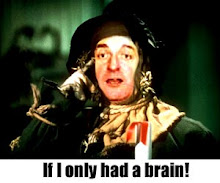The Orphanage
 The Orphanage - From wikipedia.org
The Orphanage - From wikipedia.orgThe mother battling against the supernatural for her child has become something of a staple in modern horror cinema. 'Dark Water', 'Silent Hill', 'The Dark', 'The Others' and 'Ring' are all recent examples. 'The Orphanage', directed by J.A. Bayona, though 'presented' (produced) by Guillermo Del Toro (of 'Pan's Labyrinth' fame), is yet another entry in this mini-genre. In its tale of a woman who apparently loses her son to the ghostly children of an old orphanage and must endure the worst in an attempt to rescue him, its story might seem to be a little tired. But is it?
Besides the aforementioned, the list of movie references here goes on and on. There's 'The Innocents' (adapted from Henry James' 'The Turn of the Screw') and Del Toro's own 'The Devil's Backbone' and 'Pan's Labyrinth'. Of recent films, it most closely resembles 'The Dark' with its seaside location and a lead who even resembles that earlier film's heroine, Maria Bello. There too a child was lost (perhaps drowned), but the mother sensed her continued presence in the old house in which they dwelt and fought against supernatural forces to rescue her. That movie introduced the theme of the Changeling and it is probably in that sinister fairytale of child abduction that all these movies probably have their great-great-grandmother.
A director in whose movies this theme has popped up more than once is Steven Spielberg. This theme surfaced in Spielberg's 'Close Encounters of the Third Kind', 'Indiana Jones and the Temple of Doom' and obviously in 'Hook' (dealing with a grown-up Peter Pan). From a horror perspective though, the Spielberg-produced (and penned) 'Poltergeist' could be the key to the recent spate of children in peril movies. As I mentioned before, that movie owes more than a little to Richard Matheson's Twilight Zone story, 'Little Girl Lost'. Matheson gave his tale a science fiction twist, but it doesn't take much to relate it to the original fairytale, with the Fourth Dimension standing in for Faerie (and Neverland). Certainly 'Poltergeist' has a narrative trajectory that closely follows both 'The Orphanage' and 'The Dark', though what had been a team effort by both parents has become (in this less nuclear age) almost a one-woman show ('Dark Water' makes its mother a single mum). Spielberg is too sentimental to allow things get too dark, however, and most of his abduction tales draw upon that more optimistic incarnation of the myth, Peter Pan. The notion of a roguish outsider seducing children away to Neverland is as close to the more malevolent notion of the abduction of infants by fairies as you can get without scaring your audience (though the Dark Side is always there; remember how Pan's Indian tribe, the Lost Boys, became the inspiration for a vampire flick of that name).
Bayona shares Spielberg's preoccupation with this Pan (rather than the Pan of his mentor, Del Toro), and the child who refused to grow up hovers over every frame of this movie. (Indeed, in a recent interview Del Toro gushed how Bayona was a new Spielberg.) Spielberg's grand theme of the loss of childhood and the wish for a return to its innocence, shines through in Laura's obsessive search for Simon, while a Peter figure, the child, Tomas, seems to mastermind the taking of the child to a dark Neverland. Here too, the materialism of an 'adult' world is contrasted with the spiritualism of the child and the realm this film's children inhabit. And, as in 'Poltergeist', a wise medium (an on-key Geraldine Chaplain) is brought in to identify the problem, dispense wisdom and bridge the two worlds. So far so Spielbergian. What is special here is that Bayona for all that he manifests a keen awareness of how to push the audience's emotional buttons, resists sinking into the sentimentality that mars Spielberg's work. In every respect, from the film's narrative dualism (materialistic/spiritualistic explanations are offered, though only one really works), from its combination of subtle scares and gruesome horror, and supremely in its heartwrenching mix of extreme pain and joy, he has his cake and eats it. Indeed he delivers the cake American Cinema loves to churn out, but he knows how to temper it to the more ascerbic tastes of Europe.
Having said all that, though his themes mirror Spielberg, and excellent director though Bayona proves himself to be, his style is not that of Spielberg. It is a lot less showy and not above the occasional shock tactic. And he's none the worst for that. Indeed, he is, in my view, all the better.
'The Orphanage' has no new story to tell. It is an old tale, already told many times in recent memory, and with many of the distinguishing marks of those films. It is then wonderful to relate that it ranks with the very best of those films and is well worth the retelling. Humane, painful and very scary, it marks another welcome addition to another growing sub-genre, the Spanish-language Ghost Child Film. Well might Del Toro present it.
Labels: Film, Guillermo Del Toro, Horror, Richard Matheson, Steven Spielberg, The Twilight Zone


0 Comments:
Post a Comment
<< Home